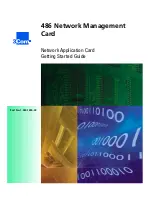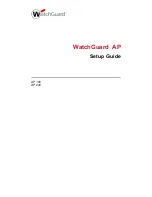
SNMP MIB Objects
E-3
3160-A2-GB22-10
December 1996
Transmission
Group
Supported on the T1 interfaces
using the DS1/E1 MIB. Supported
on the synchronous DCE data ports
using the RS-232-like MIB. Not
supported on the COM and
MODEM ports.
SNMP Group
Supported.
System Group, MIB II
The System Group Objects are fully supported by the
T1 DSU/CSU. The following sections provide
clarification for objects contained in the System Group
where it is not otherwise clear how the object definition in
MIB II is related to the DSU/CSU.
System Group – “sysDescr”
Object (system 1)
This object provides the full name and version
identification for the systems hardware and software. Set
this object to display the following string:
AT&T Paradyne T1 DSU/CSU, model xxxx-xx-xxx.
S/W Release: yy.yy.yy. H/W CCA numbers: CCA1 zzzz.zzz
CCA2 zzzz-zzz. Serial number ssssssss
Where:
xxxx-xx-xxx represents the full model
number of the unit.
yy.yy.yy represents the software revision
number of the unit.
zzzz-zzz represents the hardware revision
numbers for the unit.
ssssssss represents the serial number for
the unit.
System Group – “sysObjectID” Object
(system 2)
This object provides the authoritative identification of
the network management subsystem contained in the unit.
Set this object to display the following object identifier:
3160
1.3.6.1.4.1.74.1.14.2.2.1
3164
1.3.6.1.4.1.74.1.14.2.2.2
System Group – “sysUpTime” Object
(system 3)
This object provides the time in hundredths of a second
since the network management subsystem contained in the
unit was last re-initialized.
System Group – “sysContact” Object
(system 4)
This object provides information about the contact
person for the DSU/CSU.
System Group – “sysName” Object
(system 5)
This object provides the administratively-assigned
name for the DSU/CSU.
System Group – “sysLocation” Object
(system 6)
This object provides the physical location of the
DSU/CSU.
System Group – “sysServices” Object
(system 7)
This object provides a value which indicates the set of
services that are potentially offered by the DSU/CSU.
Only the following values are supported by the
DSU/CSU.
•
physical(1) – Layer 1 functionality for all
interfaces.
•
datalink/subnetwork(2) – Layer 2 functionality
(SLIP, PPP) for the COM and MODEM ports.
•
internet(4) – Layer 3 functionality (IP) for the
COM and MODEM ports.
•
end-to-end(8) – Layer 4 functionality (UDP) for the
COM and MODEM ports.
Therefore, set this object to 15 (the sum of
1 + 2 + 4 + 8).
Summary of Contents for ACCULINK 316x
Page 4: ...ACCULINK 316x DSU CSU C December 1996 3160 A2 GB22 10 Notices...
Page 23: ...Introduction 1 9 3160 A2 GB22 10 December 1996 Figure 1 6 Auxiliary Backplane...
Page 77: ...Operation 3 35 3160 A2 GB22 10 December 1996 Figure 3 24 Example Channel Allocation...
Page 135: ...A 1 3160 A2 GB22 10 December 1996 Front Panel Menu A...
Page 136: ...ACCULINK 316x DSU CSU A 2 December 1996 3160 A2 GB22 10...
Page 137: ...Front Panel Menu A 3 3160 A2 GB22 10 December 1996...
















































